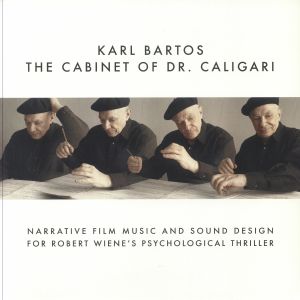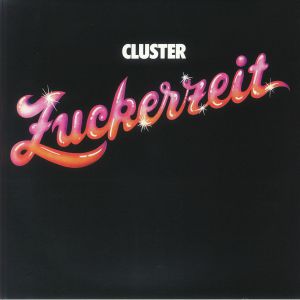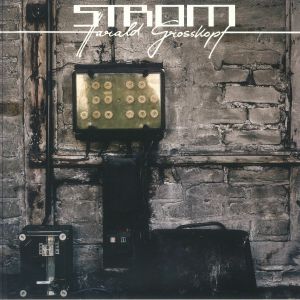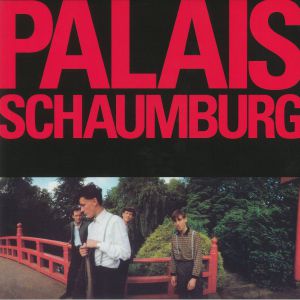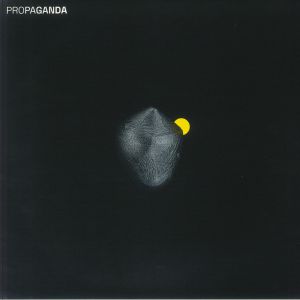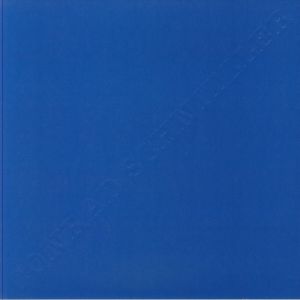Back catalogue: Coldwave/Synth
Juno's full catalogue of Coldwave/Synth
Albums
Review: Musician, writer and sometime member of Kraftwerk Karl Bartos wrote The Cabinet Of Dr Caligari as a tribute to the iconic 1920 silent horror film whose original music score had long been lost. Through electronic compositions, Bartos skilfully captures the eerie atmosphere and psychological depth of the movie, enhancing its haunting narrative with his sonic reinterpretation. The album immerses listeners in a world of suspense and mystery, blending ominous synth melodies with pulsating rhythms and cinematic soundscapes. Bartos' masterful fusion of retro-futuristic aesthetics and contemporary electronic music was made after he dug deep into his own archives to recreate epics he wrote as a young classical musician and offers an all-new perspective on the original soundtrack.
… Read more in stock $38.12
The Cabinet Of Dr Caligari (limited hand-numbered vinyl 2xLP + DVD box + booklet)
Cat: BB 400LPBOX. Rel: 26 Feb 24
Lunatic Asylum
Review: While Fritz Lang's Metropolis has enjoyed reams of revisionist soundtracks in the near-century since it was released, Robert Weine's The Cabinet Of Dr. Caligari has remained a more cult concern of Weimar-era cinema. Karl Bartos, one of the early members of Kraftwerk, has indulged his passion for the art of this unique period between world wars, when technology and art was changing as rapidly as the world around them. Employing his considerable experience and well-appointed studio to the task of re-soundtracking, Bartos has created this vibrant new score for Weine's film, pressed up here on double vinyl with an accompanying 16-page booklet.
… Read more in stock $75.97
Zuckerzeit (50th Anniversary Edition) (limited hand-numbered 180 gram vinyl LP + insert)
Cat: BB 447LTD. Rel: 10 Jun 24
Review: Cluster's Zuckerzeit stands as a landmark in electronic music, showing the duo's innovative approach to ambient electronic soundscapes. Unlike their self-aware avant-garde contemporaries, Cluster's music emerges as a pure expression of their passion for electronic gadgetry and songwriting. The album's subtle shift in sound from their previous work heralds a more intriguing style characterized by bubbling ideas and electronic manipulation. Tracks like 'Hollywood' and 'Caramel' paint vivid pictures with gloriously chunky synthesizers and jerky drumbeats, evoking reflective and playful tones respectively. 'Rote Riki' ventures into experimental territory with alien-like synths and throbbing bass, while 'Rosa,' "Fotschi Tong,' and 'Marzipan' conjure images of ambient space exploration with colorful synthesizers and relaxed drumbeats. 'Caramba' and 'James' delve deeper into experimentation, showcasing Cluster's versatility. Closing with 'Rotor' and 'HeiBe Lippen,' the album maintains its pace, with motorik beats and droning sounds adding to the overall spacey atmosphere. Clocking in at under 40 minutes, Zuckerzeit is a dynamic journey through Cluster's boundless creativity, setting a new standard for electronic music.
… Read more in stock $32.24
Review: It doesn't take long to pick up on Harold GroBkopf's progressive and krautrock roots. Born in Hildesheim as his homeland began picking up the charred postwar ruins, his oeuvre to date includes a stint in a 1960s beat group, The Stuntmen, and then a spell playing with then-unknown heavy rockers, Scorpions, before joining Wallenstein and Ashra as drummer, and getting in on several of Klaus Schulze's solo efforts. Strom betrays much of that heritage, straddling the fine line between electronica and rock, setting out its stall in a hinterland sound that's really neither nor. At times it glitters, in other moments it grinds, sometimes its beguiling, then it's more charming, in a strange, well-left-of-the-middle kind of way. An enigmatic collection of work from a true musical enigma.
… Read more in stock $25.89
Review: Kreidler return to Bureau B and not without good reason. Their seventh outing on the highly respected label follows suit on previous exploits, exploring some outer limits of cosmic-leaning, guitar-led, electronically augmented stuff. Tracks that feel made for the hidden dancefloors of weird basements as much as the soundtracks to avant garde science fiction. And if that's too much of a stretch, let's just say 'mesmerising' and have done with it. Comparing and contrasting the warm bleeps and filtered hooks of 'Diver', for example, with 'Tanger Telex' and its strange, smoky brass trip into downtempo smoky heaven serves as a quick example of just how broad yet coherent Twists is. As does 'Arthmetique', a strange, patient thing of rhythmic licks and spoken word, when considered next to the fuzzy, dub-tech-meets-math rock of 'Mount Mason'.
… Read morePlayed by: Alexis Le-Tan
in stock $31.12
Palais Schaumburg (reissue) (limited hand-numbered red vinyl LP + insert)
Cat: BBRED 100. Rel: 14 Jun 21
Review: Influential Hamburg band Palais Schaumburg's self-titled 1981 album takes some beating. It is one of German alternative music's most accomplished and critically acclaimed works, with hardcore prasie from those who know. Fusing rock, new wave and experimental across 10 timeless track, it mixes tight post punk rhythms with dubbed out vibes and avant-garde ideas. This deluxe reissue of Holger Hiller, Thomas Fehlmann, Ralf Hertwig and Timo Blunck's best record includes all tracks from the original album on a nice red slab of wax with a new insert
… Read more in stock $33.36
Review: Bureau B present the very latest full-length LP from art-synth auteurs Propaganda, aka. Ralf Dorper and Michael Mertens. Emerging almost two decades on from their last release, this record is nonetheless remarkable as it is their first and only self-titled record, suggesting a sense of culmination and timeliness - in Bureau B's words, Propaganda (the LP) explores "fresh sounds and styles, and (reflects) personal and societal changes since their last outing". The excesses and lacks of boom-bust capital exhaustion and planetary-systemic fatigue are heard in full sway here; both themes alloy themselves starkly against the understated EBM and dark synth influence that permeates the record, a sound otherwise distinctly connoted as 80s and retroistic. Through their crystal-clear productions - their techno-Arcadian visions in composition, and passionate lyrical musings on machinic desire by way of collaborators Thunder Bae and Hauschka - Propaganda synthesise a yet new subliminal message, one that charts a line out of the past and into the present.
… Read more in stock $29.99
Blau (50th Anniversary Edition) (limited hand-numbered translucent blue vinyl LP in embossed sleeve)
Cat: BB 103LTD. Rel: 10 Jun 24
Review: 'Conny' Schnitzler's name needs to be remembered by more people. Born on the cusp of World War II, he would prove instrumental in the post-war surge of sonic experimentation that took Germany by storm from the 1960s onwards, playing an integral part in West Germany's krautrock movement having already been an early member of seminal band Tangerine Dream and founding father of Kluster. But it's his solo work that really needs more attention. A proponent of the Dusseldorf school - arguably Germany's most important city for popular music in the late-mid-20th Century - in 1974 he released Blau, a bold record comprising two extended tracks, 'Die Rebellion Haben Sich In Den Bergen Versteckt' and 'Jupiter'. One feels like the late night synth soundtrack to rain-soaked city streets. The other as though we've opened the hatch and stepped out into retro outer space. Take from that what you will.
… Read morePlayed by: Ekoplekz, Juno Recommends Experimental
in stock $31.39
Review: Club scene doyen, dance music veteran, and rave culture hero Johannes Auvinen opts to depart from the dance floor, at least for the time being, and deliver Arles - an ode to the other side of the electronic-acid scene, those sounds that make most sense after the chaos and carnage of a party have subsided and you're safely home on the couch with you and yours and all dearest.
And it works as well as it should, with the experience both of living in that world and making anthems for it clearly evident in the overall production quality and ideas. Arles is a warm blanket, that friendly therapist, an album that understands where you've been because it was there too. Remarkably, despite what that may suggest, this is not ambient or particularly leftfield stuff. Instead, it's rhythmic, pop-infused electronica goodness, for want of a more succinct, less awkward turn of phrase.
… Read moreAnd it works as well as it should, with the experience both of living in that world and making anthems for it clearly evident in the overall production quality and ideas. Arles is a warm blanket, that friendly therapist, an album that understands where you've been because it was there too. Remarkably, despite what that may suggest, this is not ambient or particularly leftfield stuff. Instead, it's rhythmic, pop-infused electronica goodness, for want of a more succinct, less awkward turn of phrase.
Played by: Stunty
in stock $26.63

 USD
USD





